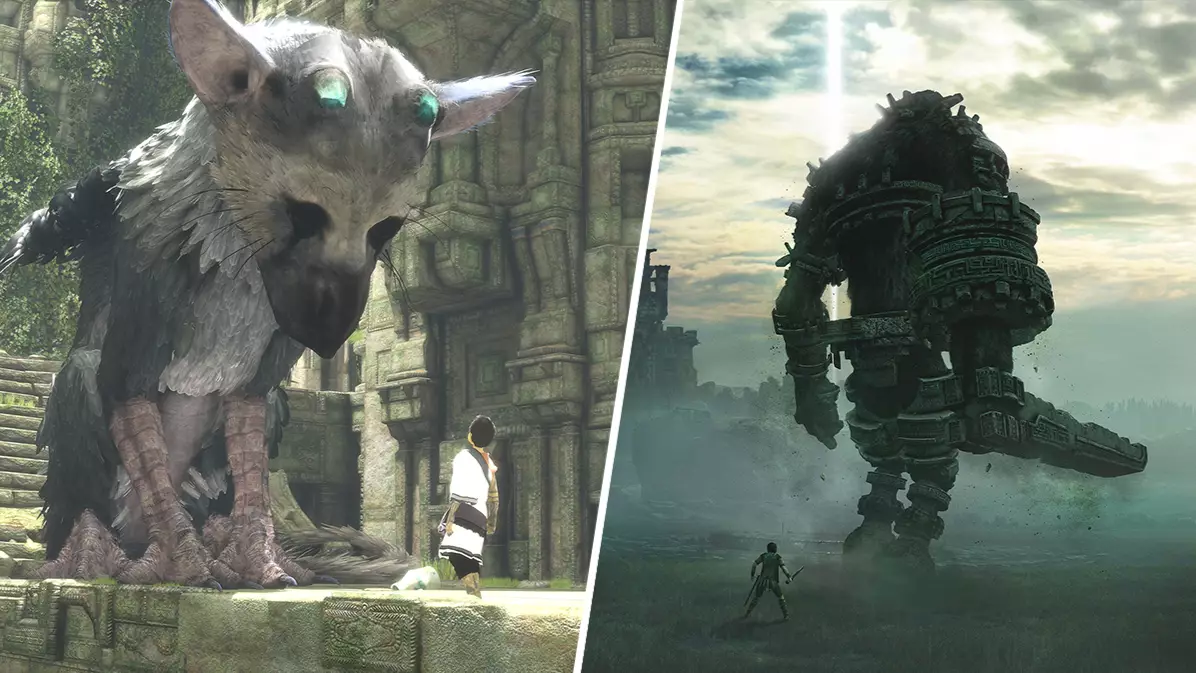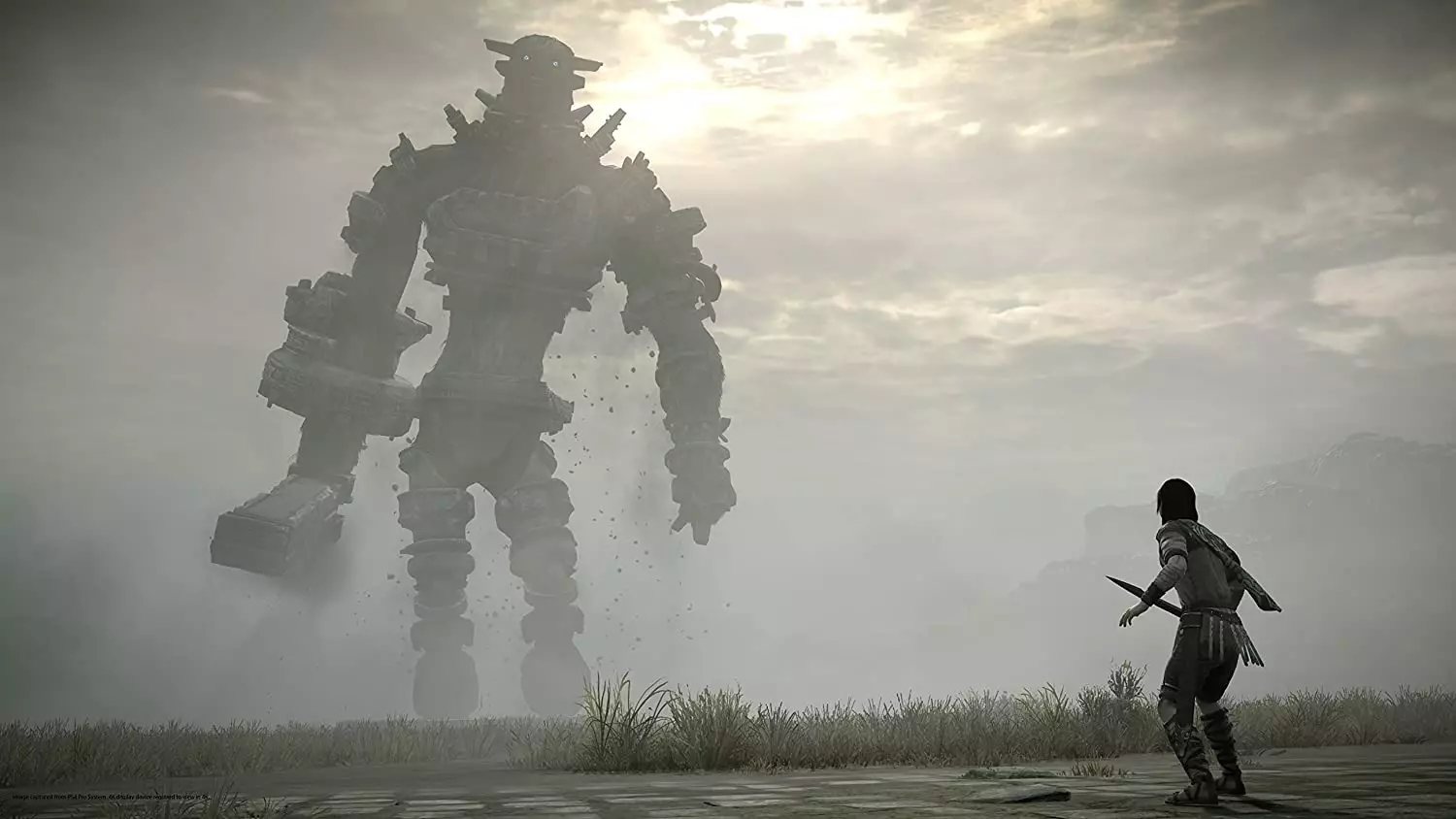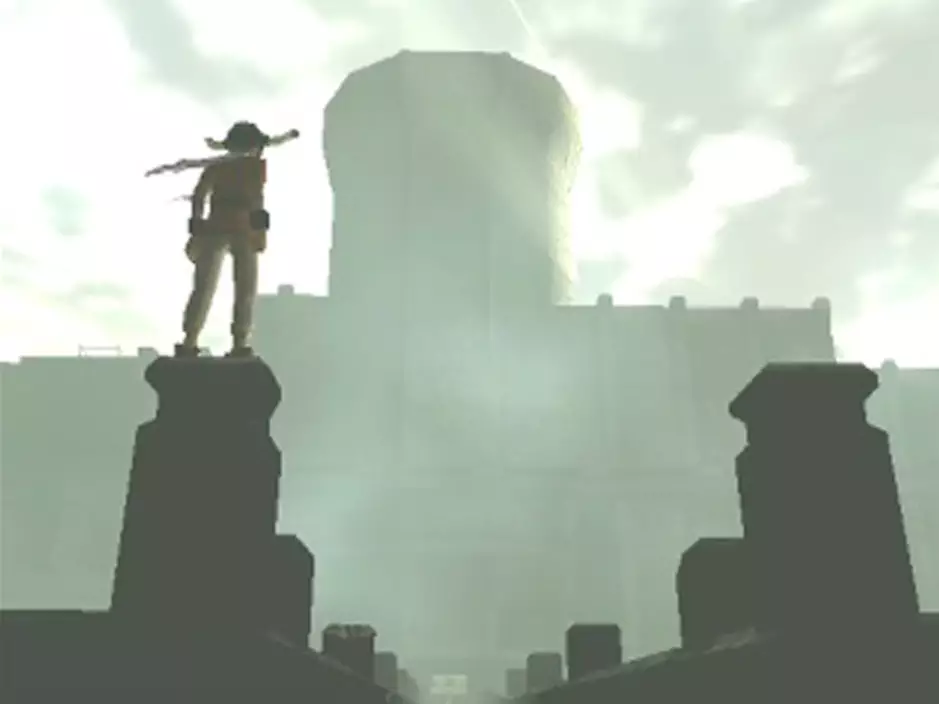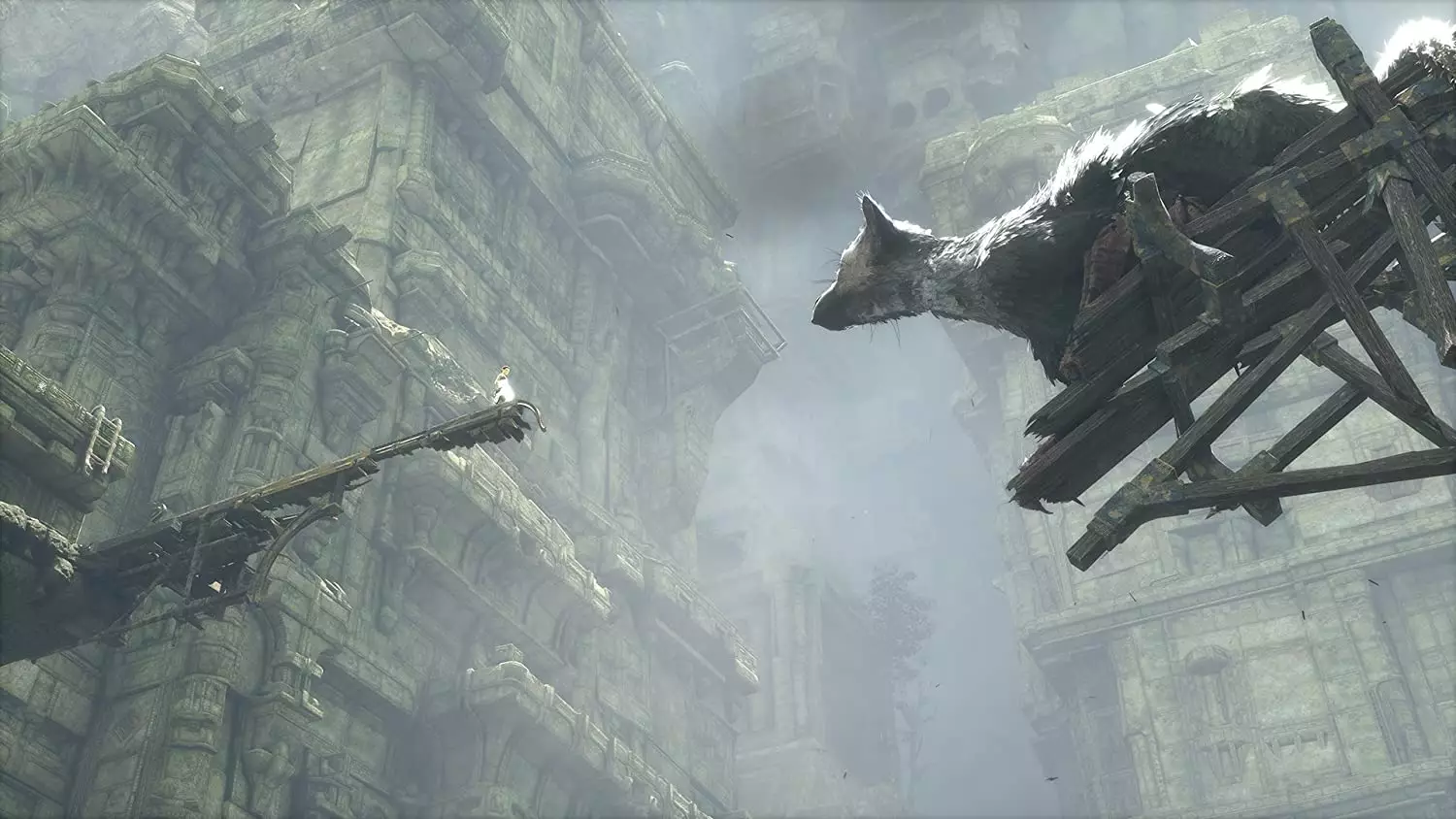
The most common of curses to blight modern-day open-world video games is too many things in too little space. Play a Far Cry, or an Assassin's Creed, a Horizon or a Witcher for just a handful of hours and your map will be liberally peppered with waypoint markers. New quests to commence, notable NPCs to meet, trivial collectibles to hoover up. A flood of flashing icons and radar blips, which can become overwhelming.
But one game designer, Fumito Ueda (leading a team at Team Ico, a part of the now-defunct Japan Studio), realised a fantastic, iconic open world in a very different way. Shadow of the Colossus, released in late 2005 for the PlayStation 2 and remade for the PS4 in 2018, sends the player into the Forbidden Land, a place unpopulated by other humans and largely devoid of any animal life at all, a few lizards, fish and birds aside. The player, as Wander and his horse Agro, follow one path at a time, led by a beam of light emitting from a magical sword held aloft, pointing towards one of the 16 giants that give the game its name. No proximity-activated extras or side-quests slowly filling a to-do list: just you, this world, and one colossus at a time.
Watch the E3 2017 trailer for the Shadow of the Colossus remake, below...
The difference in feel, compared to most open-world titles, is stark when firing up the 2018 remake of Shadow of the Colossus. Its world isn't empty, but players have become so programmed to continually uncover new surprises, pursue fresh leads, in their most massive of virtual playgrounds that it can be easy for Wander to lose his way, or to spend ten minutes at a time essentially just riding, no distractions, no noise but the hooves and the wind. It's curiously disorientating - but it's also a model that, in the years since Shadow of the Colossus's debut, other games have adopted, to separate themselves from the boisterous busywork of conventional open-world play.
Advert
The one that springs most effortlessly to mind is GAMINGbible's greatest game of all time, The Legend of Zelda: Breath of the Wild. Nintendo's feted adventure does eventually fill its map with fast-travel icons, but beyond that it restricts its visual noise to key villages and outposts, and markers the player has positioned. Its map, just like that of Shadow of the Colossus, only fills in once you've been there to see a certain place; and like Shadow of the Colossus, it doesn't lay out a visual breadcrumb trail for you to follow, instead relying on the player to use what tools they're provided with to make their way from A to B.

More recently, two of our most well-reviewed indie games bear clear influence from Shadow of the Colossus and its minimal-distractions world design: The Pathless features an archer racing their way through largely deserted but still fantastical landscapes, and facing off against humongous foes; while the more sci-fi-styled JETT: The Far Shore sees spacefaring explorers setting foot on a mysterious new world with no human-like life to welcome them. Both are quiet spaces of meditation beset by flurries of furious action, just like Shadow of the Colossus; and both are locations acutely cursed by something wholly indescribable, just like Shadow of the Colossus.
These are but three games to bear the touch of Ueda and Shadow of the Colossus's precedent-setting alternative to a suffocatingly hectic virtual environment. But interestingly, Ueda didn't realise the Forbidden Land's stunning stillness from an artistic starting point, as is often the assumption - he created the game's world based more on an overarching philosophy on game design.
Advert

Speaking to Cane and Rinse in 2019, Ueda said: "The worlds I have created were generated out of restrictions. They were generated out of the necessity for functionality reasons, rather than backstory. By this way of creating, I think the world can be expressed with consistency and harmony. Rather than something sumptuous but with no sense of existence, I believe something cheap yet having a sense of existence would make the world feel more authentic."
To Ueda, it's game mechanics, the moment-to-moment play, which matter more than the worlds the player moves through - and that's perhaps why his other titles as director and lead designer, 2001's Ico and 2016's The Last Guardian, also do little worldbuilding and focus much more on the interactions the player has with their avatar, and that avatar's relationship with something else. And his characters, too, are built from the same way of thinking, with Ueda telling Cane & Rinse that they're made to "help players feel the game design more effectively," and that their "design is done for this purpose".
---
Advert
I always ask myself the question, because I create video games: what can only be done in a video game? - Fumito Ueda
---
In Ico you play as the titular child with a horned head, leading an AI-controlled girl called Yorda through a creepy castle. In The Last Guardian, again you're a boy, but this time directing the behaviour of a large, winged, cat-like creature called Trico. Both are puzzle games above all else, necessitating intelligence rather than brute force to best, with the supporting NPCs' presence vital to progression - and the colossi of Ueda's middle entry of Team Ico's trilogy are similarly structured. You slay them, absolutely, but only by working out each monster's unique riddles, and crawling to select spots on their titanic bodies before delivering a death blow.
"I always ask myself the question, because I create video games: what can only be done in a video game?" Ueda told me, for VICE, in 2016. "The games that I make, they have these situations with two characters - that's my response to that question. When you have one character created by a program that acts on its own will, you simply can't do that in a film, or a book."
Advert

For me, that's what makes the games of Fumito Ueda special, above all else: he's one of the few creatives operating in the broad church of action-adventure gaming that understands that to really strike out and stand apart, you need to look at what's only possible in this medium. The Witcher, Far Cry, Assassin's Creed: it's perhaps telling that these franchises have led to Hollywood movies and big-budget TV shows. They use their games as vehicles for stories, their open worlds as canvases for tales both tall and small. Shadow of the Colossus is a video game, and only a video game - so too Ico, so too The Last Guardian. To translate them into anything else is to rob them of their magic, and undermine their impact.
Team Ico is no more - and Japan Studio too, closed by Sony in April 2021. Ueda is up to something, however, with a follow-up to The Last Guardian surely coming soon from his studio genDESIGN, as artwork for it was teased at the beginning of 2021. Back in 2016 he told me: "One part of me will think about delivering a game in the same style as I've always done, another will feel that I want to betray what I've done before, and come up with something completely different." Whatever that next game is, be it in a vein comparable to Shadow of the Colossus or not, Ueda's peers around the world will be watching, and taking notes.
This piece is part of a series briefly profiling influential game creators, true masters of style, and their key works.
Advert
---
This editorial content is supported by Philips OneBlade. Philips is committed to providing products that fit into every individual's life, to suit every personality's idea of style. Every one of us is unique, and every one of us feels comfortable and confident in different ways - and the flexibility of Philips OneBlade ensures that anyone can express themselves in a way that's all about them. Find more information here.
Featured Image Credit: Sony Interactive EntertainmentTopics: Philips, PlayStation, Opinion